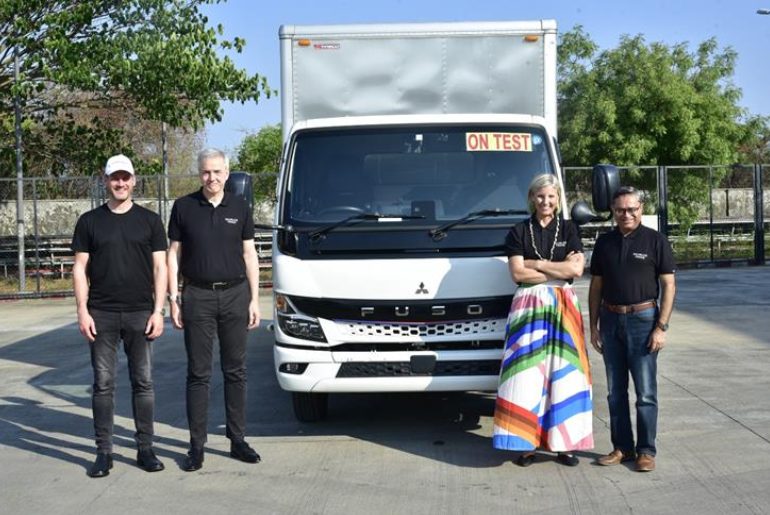Daimler India Commercial Vehicles has announced its debut in the Indian market for zero-emission trucks.
The nation’s clinical trial for the company’s light-duty electric truck eCanter, which is anticipated to be on sale in the next six to twelve months, has begun.
To meet the nation’s expanding demand for e-commerce, the third-generation eCanter will be built in India. With the introduction of the vehicle, Bharat Benz also entered the 3.5 to 7.5-tonne truck market, an area in which it has not before participated.
The business stated in an announcement of its long-term preparation plan for decarbonising transportation solutions that CO2-neutral propulsion and diesel internal combustion engine (ICE) will coexist at least until 2050.
The introduction of the all-electric eCanter in India, according to Daimler India Commercial Vehicles MD and CEO Satyakam Arya, is the first move in the company’s long-term plan to decarbonise its whole product line.
“However, the reality is that diesel ICE and CO2-neutral propulsion technologies will continue to co-exist in the Indian market for the foreseeable future. Over the next two decades we will have a firm footing with decarbonised transportation solutions and will be making progress towards becoming a leader in sustainable transportation in India,” added Arya.
A long-term plan for the company hinges on many complex external factors, such as the availability of a charging and refuelling infrastructure, availability of green energy, cost parity and wide-scale customer acceptance, explained the company.
“Therefore, our initial focus with the eCanter is to achieve product and service excellence, along with customer acceptance,” he said.
So far globally, Daimler Trucks has sold over 2500 E-Canters around the world with over 8 million kilometres on the road. Based on the Mitsubishi Fuso platform, the light-duty truck is being assembled in Japan as well as Europe and India will be the third major market where this model will be locally assembled.
The company’s CO2-neutral propulsion technology roadmap is being prepared in line with Daimler Truck’s global technology strategy with battery electric and hydrogen-based drive technologies.
DICV has already developed a BharatBenz hydrogen fuel cell concept coach in alliance with a large Indian conglomerate. In the future, DICV will introduce trucks across different utility segments that will serve long haul, mining, construction, POL, dumper, RMC and so forth for various freight and terrain requirements.
“LNG, if used at all, will be an interim, tactical solution for long haul transportation. We will primarily commit to battery-electric and hydrogen-based propulsion technologies across our future product portfolio, in a phased manner. One thing is for sure that we will be ready with the right vehicles when the market is,” said Arya.
The proven, next generation of the eCanter will have a significant presence in major markets around the world with 100 variants.
Commenting on how a conducive policy framework is crucial to ensuring economic viability for customers, Arya asserted, “Successful adoption of CO2-neutral vehicles is possible if there is wide consumer acceptance about changes in the equations of total cost of ownership. This underscores the influence of important factors in achieving success in sustainable mobility solutions. By foraying into the CO2-neutral propulsion technologies, DICV aims at contributing to India’s future as it progresses towards becoming one of the world’s top five commercial vehicle markets.”

